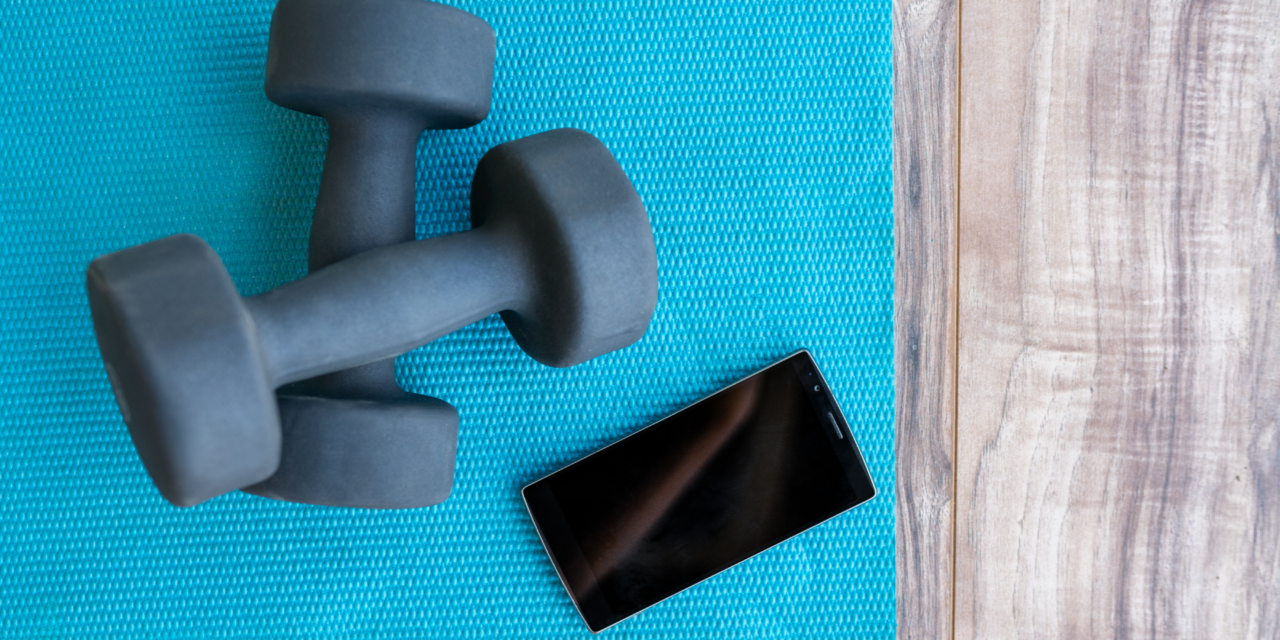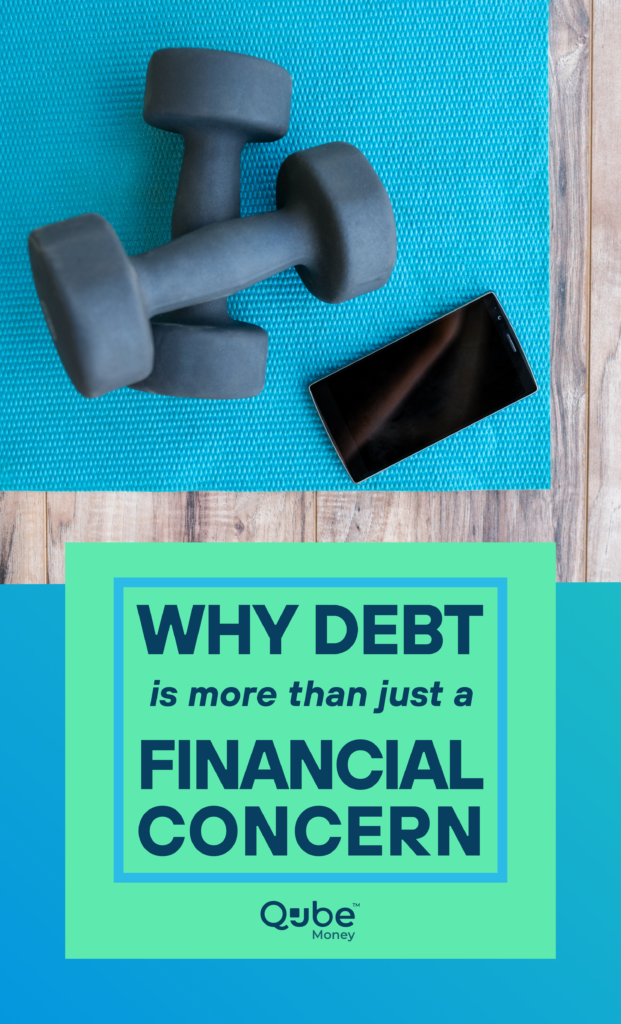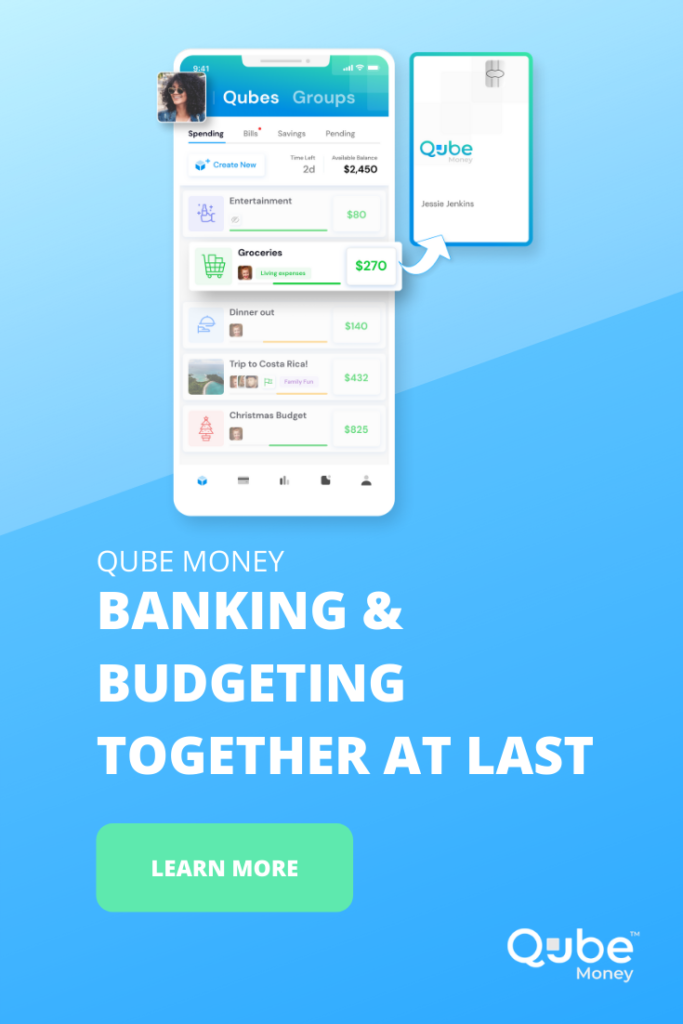Does the thought of your debt cause anxiety or embarrassment? Do you avoid opening your credit card statement so you can prolong having to face your balance for another month? If you can relate to these scenarios, you’re not alone. In fact, according to Northwestern Mutual’s 2018 Planning & Progress Study, the average American had personal debt exceeding $38,000 (exclusive of home mortgages).
While debt makes it challenging to achieve financial stability, we forget how it impacts our mental, physical, and emotional health. Read on to discover how debt impacts your well-being and what you can do to avoid future debt accumulation.
Debt-Denial
You don’t have the luxury of endless spending. However, you may act as if you do because it’s easier than coming to terms with your real financial situation. You may also allow your debt situation to deteriorate without awareness.
You may continue to put off managing your debt until something catastrophic such as facing foreclosure or legal action.
So, how do you know you’re in debt denial? Here are a few tell-tale signs that you may be facing debt-denial:
- Not reviewing your statements or opening bills when you receive them.
- Underestimating the total amount of debt you owe.
- Avoiding calls that you suspect are from collection agencies.
- Applying for new lines of credit when you have a feeling your other credit card accounts are maxed out.
- Convincing yourself that everyone has the same financial situation as you do, therefore it’s okay to ignore your debt.
While it’s understandable to want to avoid bad feelings, this behavior leads to more financial problems.
Stress
Debt and stress seem to go hand-in-hand. In fact, according to a recent study conducted by the American Psychological Association, 72% of Americans felt stressed about their financial situation within the last month. While you may relate to this statistic, you may not know how this stress is affecting your health.
Stress if a normal part of life. Stress is the body’s reaction to any change that requires an adjustment or response. Your environment, body, and thoughts can impact your level of stress at any time. While the human body is designed to experience stress, it becomes a burden when without relief or relaxation. Here are a few symptoms you can expect from an excess amount of stress:
- Elevated blood pressure
- Uneasy stomach
- Chest pain
- Panic attacks
- Depression
- Anxiety
Stress is also associated with the leading causes of death which include heart disease, cancer, lung ailments, and cirrhosis of the liver. Stress can also cause you to lose sleep, not perform at your job, and lose all focus.
Anger and Resentment
Everyone copes with debt differently. While some resort to denial or stress, others resort to anger. You may get mad when you see the mailman deliver your bills or lash out at your bosses for not paying you more. You also get upset when an unexpected expense arises. Essentially, you are living a life filled with anger and frustration.
Not only can anger such as this ruin your well-being, but it can also destroy relationships, cause migraines, lead to heart disease, and lower your immune system.
Depression
After getting through the anger, stress, and denial stages, you may feel depression begin to set in. You may feel hopeless and resort to relieving your feelings with a shopping spree. This can become a never-ending cycle of debt and depression.
But all this does is create more debt, which leads to misery and depression. If this sounds cyclical, that’s because it is. This cycle leaves you in a state of not caring where your pain comes from – the debt or the depression. The good news is this is a cycle that you can break by learning how to eliminate your debt.
How to Tackle Debt
Now that you understand the impact debt can have on your mental, physical, and emotional state, you may be wondering what to do. You don’t have to let your debt control your life and your happiness. You can do plenty of things right now to either tackle your current debt or avoid future debt accumulation.
The act of starting to dig yourself out of a financial hole is a great first step to make you feel better. Here are a few suggestions to help you get started on the path toward debt freedom.
Get Clear About What You Owe
A good first step to tackling debt is to understand who and what you owe. You should make a list of your debts and include the total amount owed, the minimum monthly payment, who it is owed to, and when it is due each month. If you’re unsure about who and what you owe, you can look at a copy of your credit report online.
Once you have each debt as a line item in front of you, you will be able to start eliminating each debt. You will want to update this list every few months as you pay down your debt and be sure to refer to it at least once a month as you make payments.
Organize Your Finances
Once you have a list of each of your debts, you can organize them. Then, log in to each account online or connect with a representative of the creditor over the phone. You can update your contact information and understand when each bill is due. You should also investigate what kind of notifications each account offers so that you can be reminded in advance of each due date. Also, you may want to add each due date to a calendar so that you can see when each bill is due.
Now that you have all of the little things organized, you can implement a system for paying back each bill. You may want to schedule auto deductions from your bank account. It is important to note what the interest rate is on each account. If the interest rate is high, making the minimum payment might not be enough. If you have the extra money in your budget, you may want to pay down high-interest accounts faster to avoid paying additional interest fees.
Review Your Expenses
Debt can feel like you’re on a merry-go-round. You work, get paid, and immediately spend your entire income on bills. If you take the time to understand where each of your payments goes, you can then understand what bills can be minimized or eliminated.
For example, if you find that you are spending $100 a month on a cable bill, you may want to consider minimizing it with a streaming subscription that costs $15 per month. That is $85 a month that could go toward debt payment. You may also want to find ways to lower your utility bills or review your spending habits.
Minimize Spending
In a similar fashion to reviewing and minimizing your recurring expenses, you should also look into how you can minimize your spending. The first step to minimizing your spending is to understand how much you spend. You can look at a credit card statement to analyze what you’ve been spending each month. Look at each purchase and determine if it was something that you wanted or needed and think about where you can eliminate or minimize what you spent on each category. Once you understand your spending habits, you can decide what items to eliminate or minimize.
For example, if you learned that you spent $200 on clothes one month, you may want to challenge yourself to not purchase clothes for a month or two and contribute the extra money toward your bills. Another example is you may realize that you spent $300 dining out or buying lunch. You can create a meal plan that includes buying groceries that cost $100 for the month and contribute the extra $200 toward your debt.
Boost Your Income
Cutting back is a great way to reduce your debt, but you can maximize the contributions to your debt by making more money. One way to do this is to increase your salary in your current job. You may want to ask your manager if you are eligible for a promotion. If you are paid hourly, you may want to see if you can increase your hourly pay or work overtime. You could also consider taking on a part-time job or take on side jobs such as driving for a car-share company.
Monitor Your Financial Habits
One way to monitor your finances is to keep a budget and review it often. A budget ensures that you have enough money to cover your monthly expenses and allocates the additional funds that you have after bills and other expenses. Your budget should plan far enough in advance for upcoming large expenses so that you can save for them rather than put large expenses on credit cards.
You may also want to consider using a tool like Qube to help you monitor your budget and spending habits. With Qube, you can create digital money envelopes with a designated amount for each of your spending categories. Not only does using a tool like Qube help you stick to a budget, but it helps you highlight poor spending habits so you can make adjustments.
Make a Repayment Plan
Your budget will include all the payments that you have to make toward your debt. From all the strategies available online, do your research and choose the repayment method that works best for you.
One popular strategy is the debt snowball strategy. This method says that you should start with the debt that has the lowest balance and pay it off with any excess money you have. Once this debt is paid off, you contribute the money that you were spending on paying it off plus any excess and contribute that amount to the second smallest debt and so on.
For example, let’s say you have credit cards with balances of $2,000, $3,000, and $6,000, plus an auto loan with $15,000 left to pay. The snowball method would tell you to make minimum payments on all debts and contribute any excess to the $2,000 balance first. Then, when that is paid off, you would apply the minimum that you were paying on the $2,000 debt toward the $3,000 debt, and then contributing any excess to the $3,000 debt.
Another strategy is to pay off the debt is the avalanche method. With this method, you repay your high-interest rate debt first. For example, if you had the same debts but the interest was highest on the $6,000 debt, you would contribute any excess to that balance first, then when it is paid off, you’d contribute any excess money to the second-highest interest loan and so on.
Lower Your Interest Rates
Interest is one of the most frustrating parts of debt because it continues to grow the amount that you owe, even after you’ve stopped using that loan. The first step you can take to lower your interest rate is to call your creditor and ask if they can lower the interest rate. If you have a low credit score this might not be an option, but it could save you a lot of money if you can lower your interest rate.
You may also want to look into doing a balance transfer to a credit line that has a lower interest rate or 0% interest rate for the first year. This could be an issue if you do not pay off your debt in the promotional time frame but could also be a way for you to make a huge dent in the balance of your debt.
Student loans and other private loans may have an option to lower your interest rate if you enroll in auto-pay each month. This is a good idea because you will never miss a payment if it is deducted directly from your bank account. You can call your loan provider and ask them for details to see if this is an option for you.
The Bottom Line
Debt affects so much more than your bank accounts. Debt can cause anxiety or depression and can cause friction in relationships. You can take to eliminate your debt.
Remember, small steps can make a huge impact on your debt. Take the steps that you need to be in control of your financial freedom.








